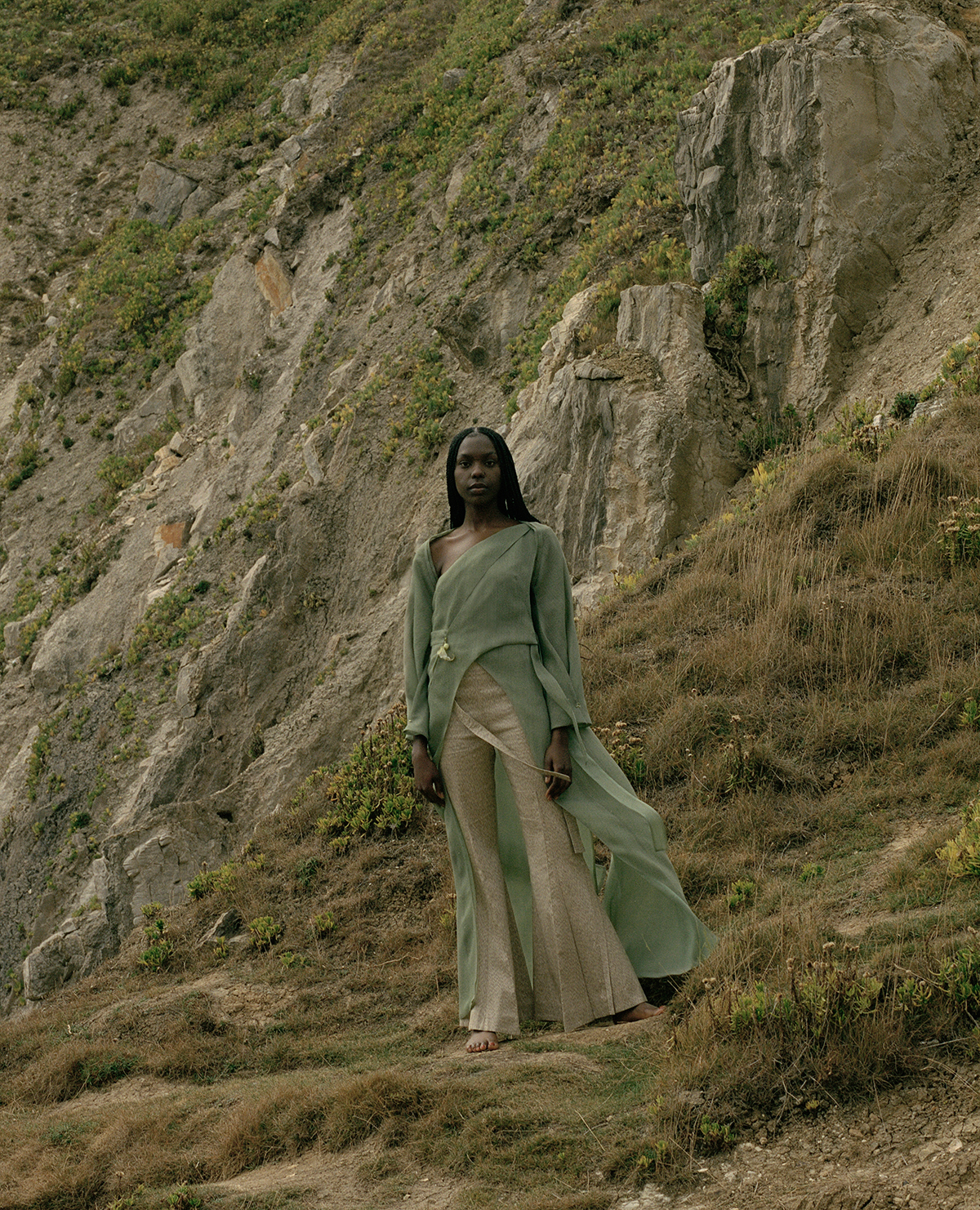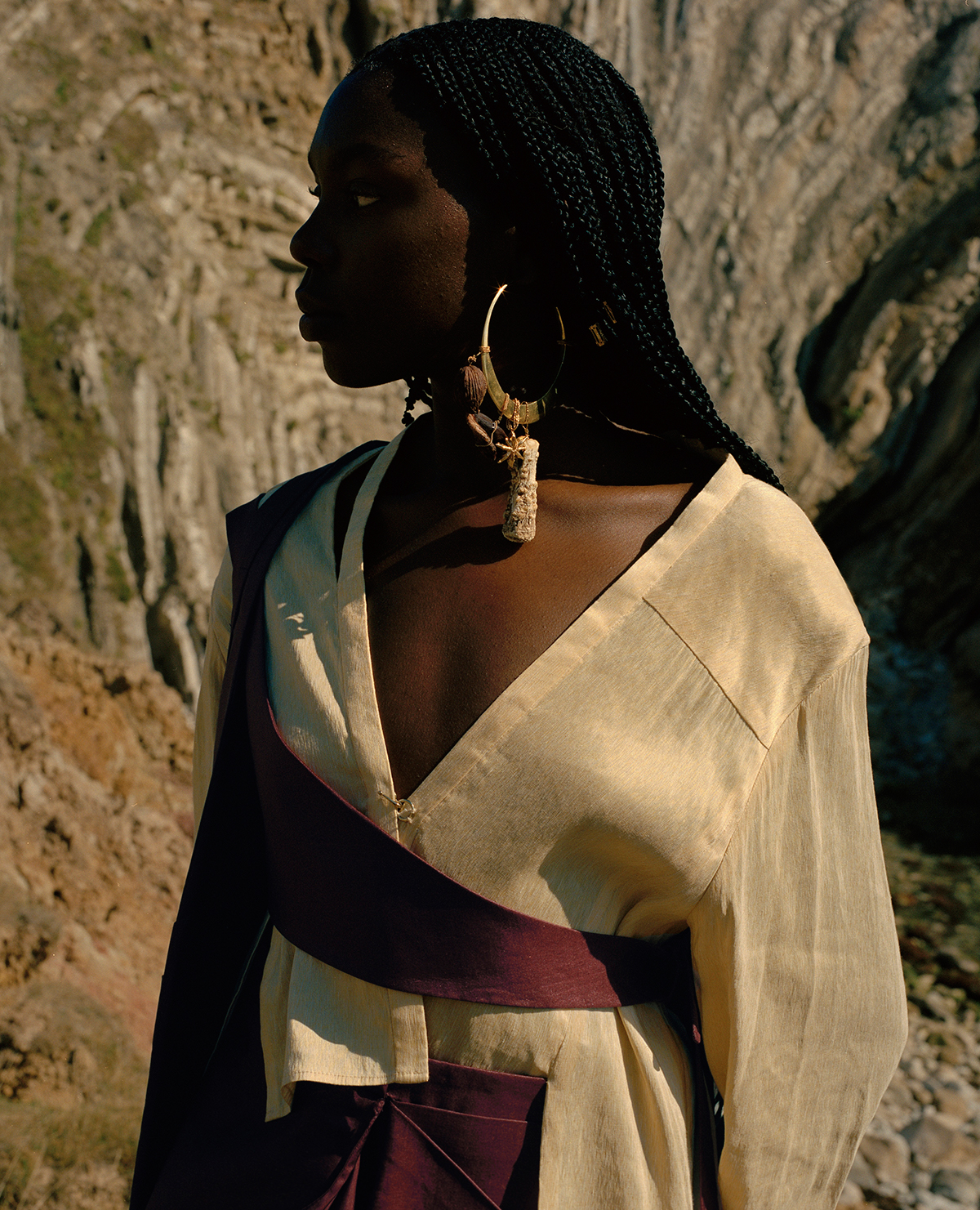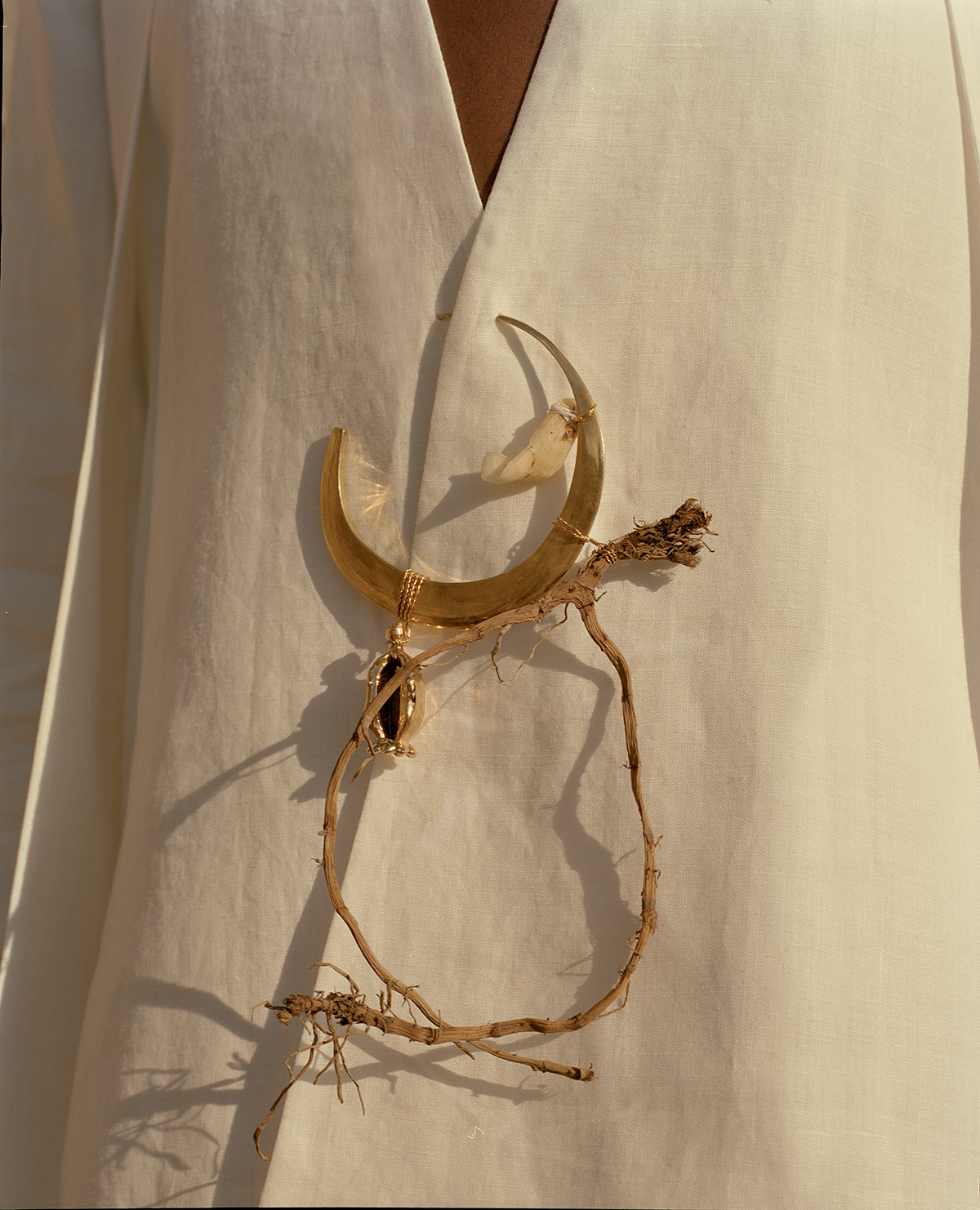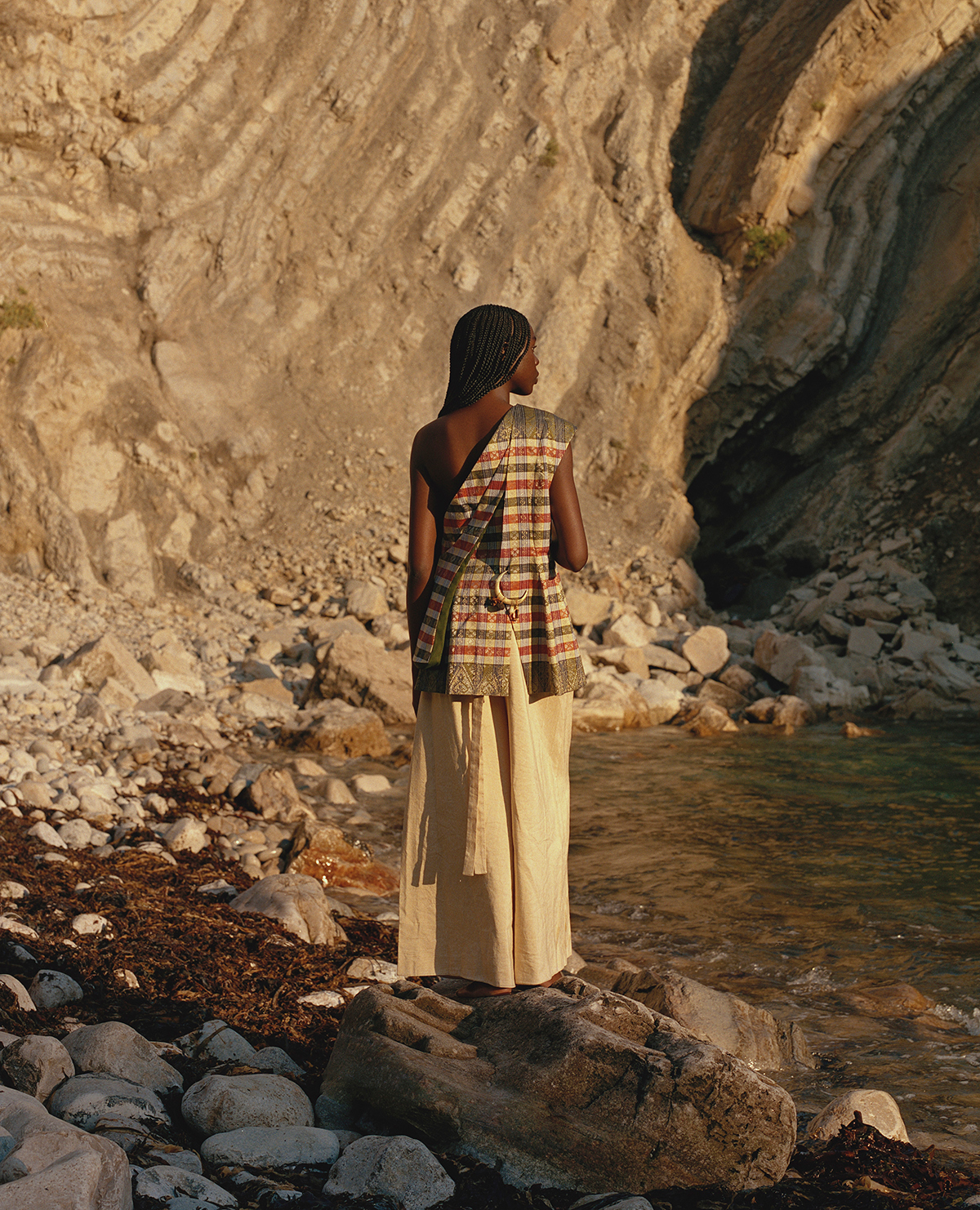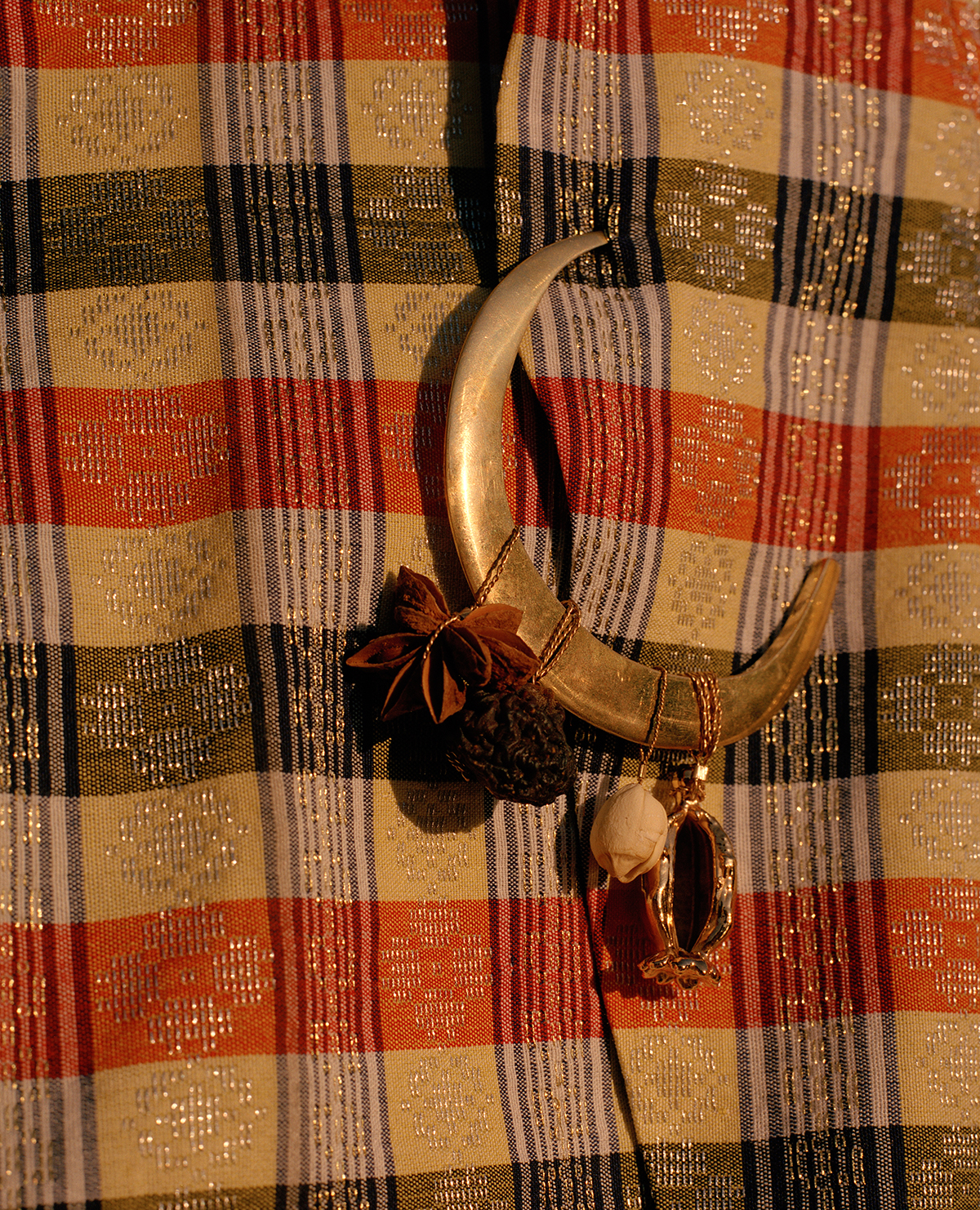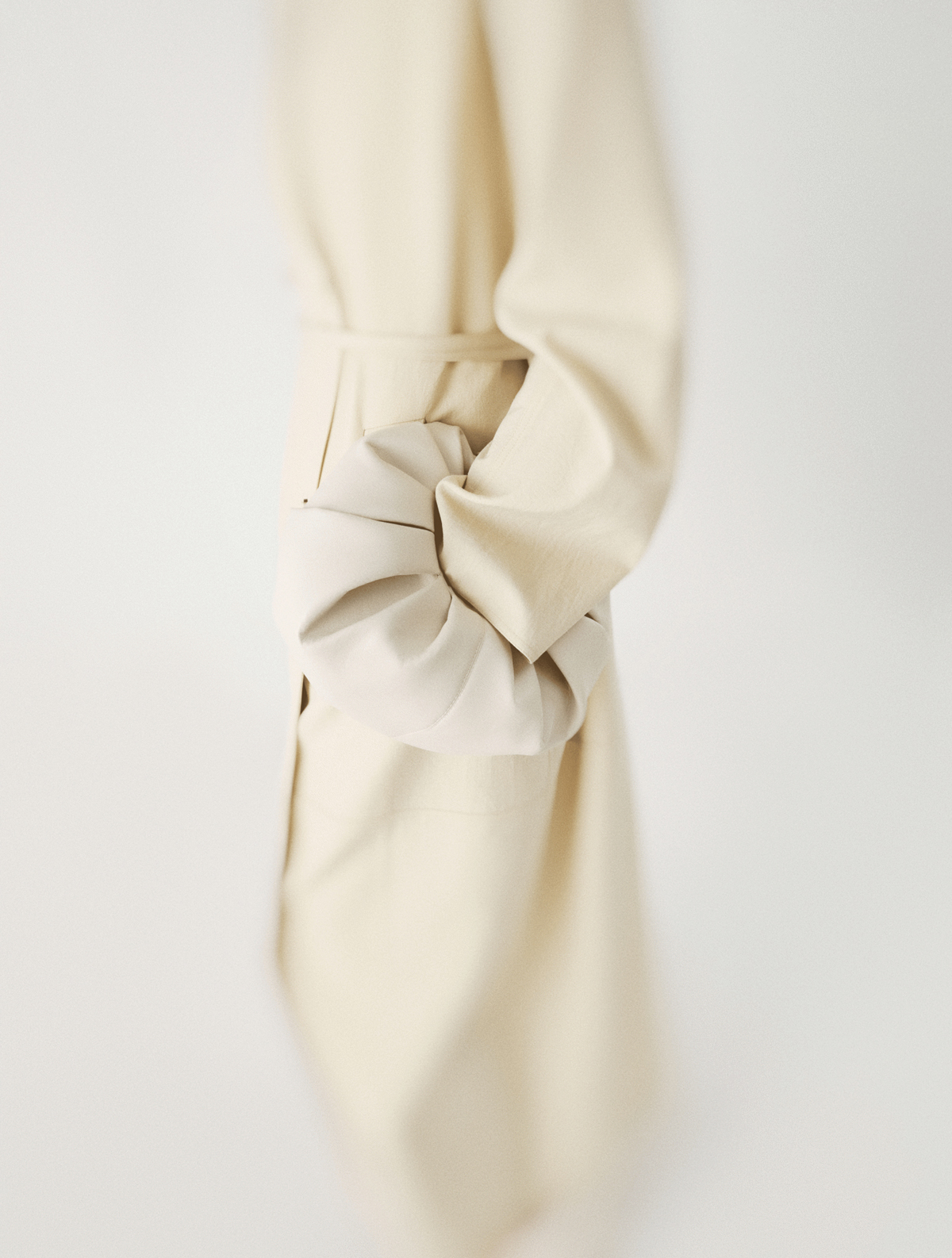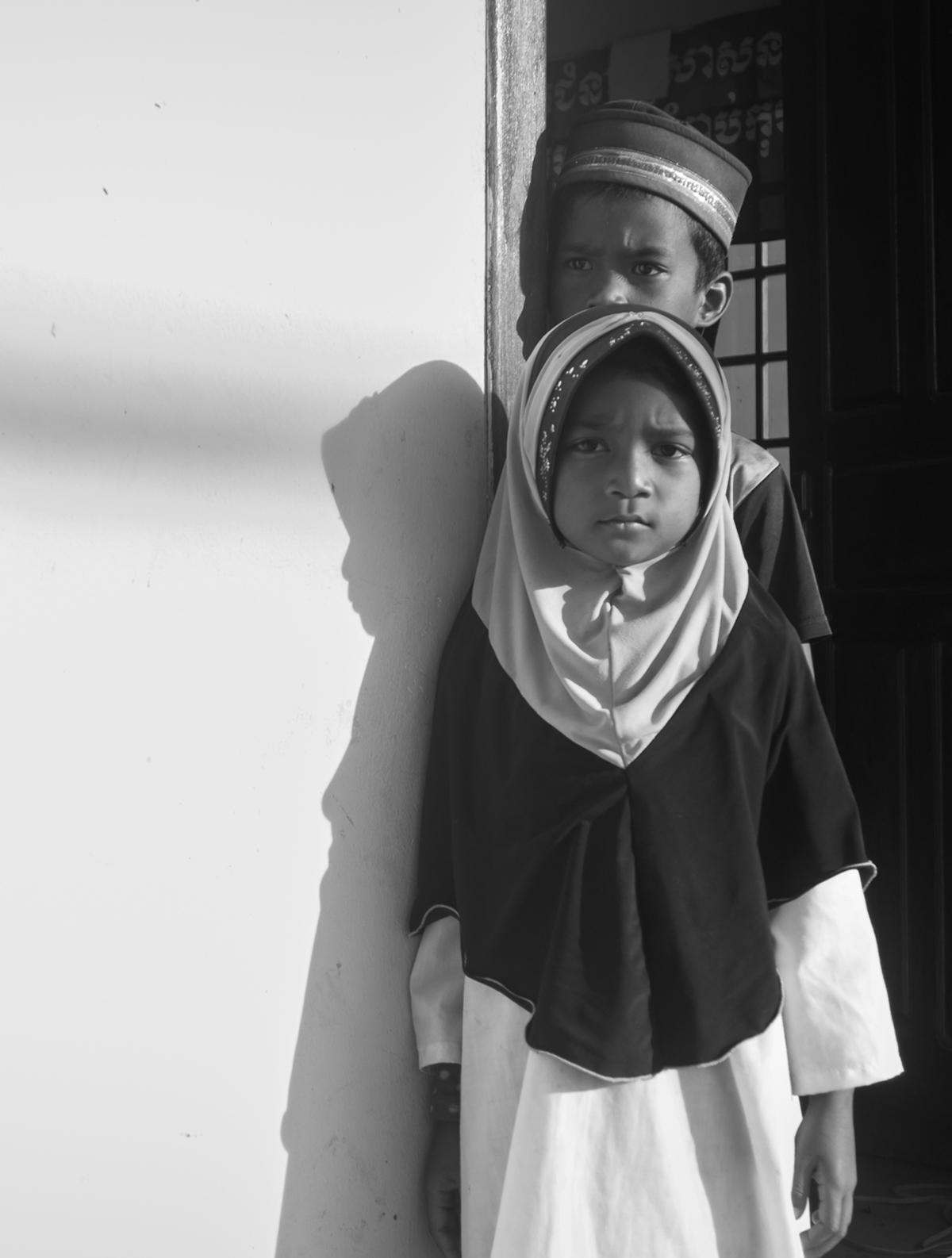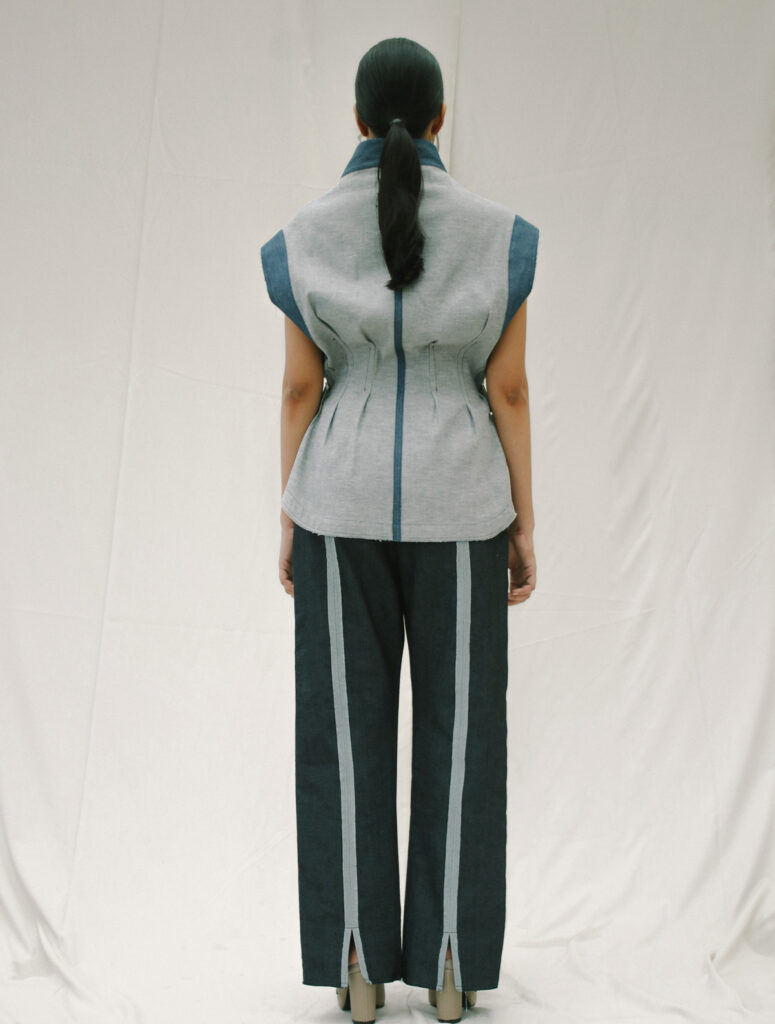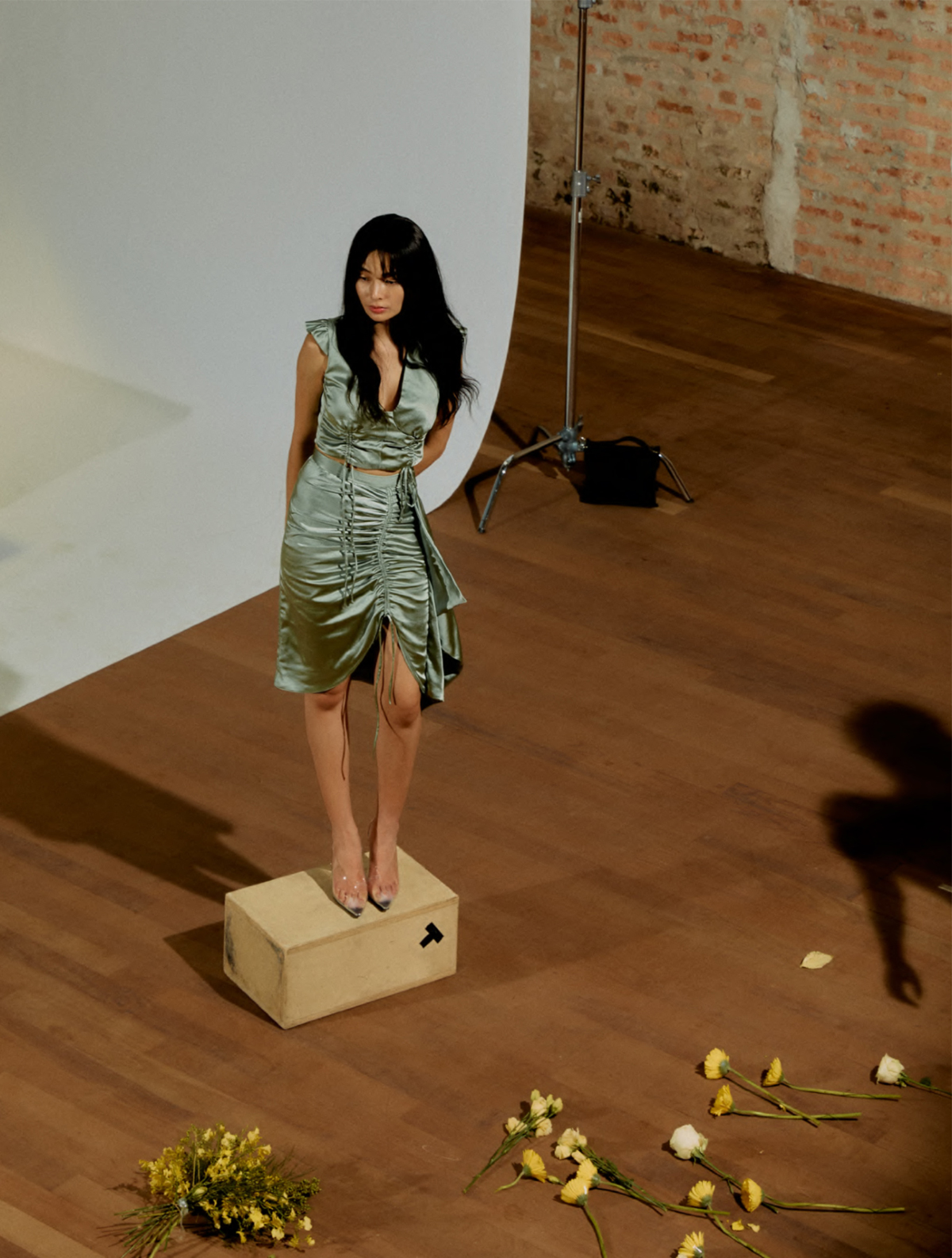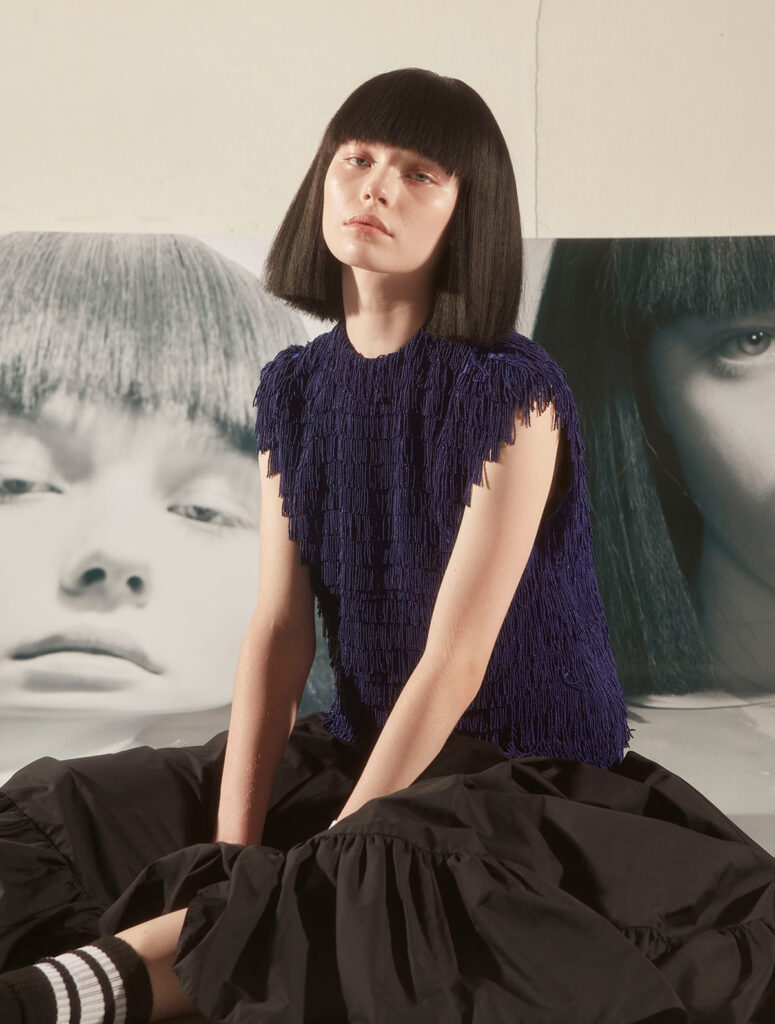Photographs by Elizabeth Gabrielle Lee
Words by Ilia-Sybil Sdralli
Published on March 19, 2021
Share this :
With a Malaysian-Swedish heritage, the designer has a resolute reverence for multiculturalism.
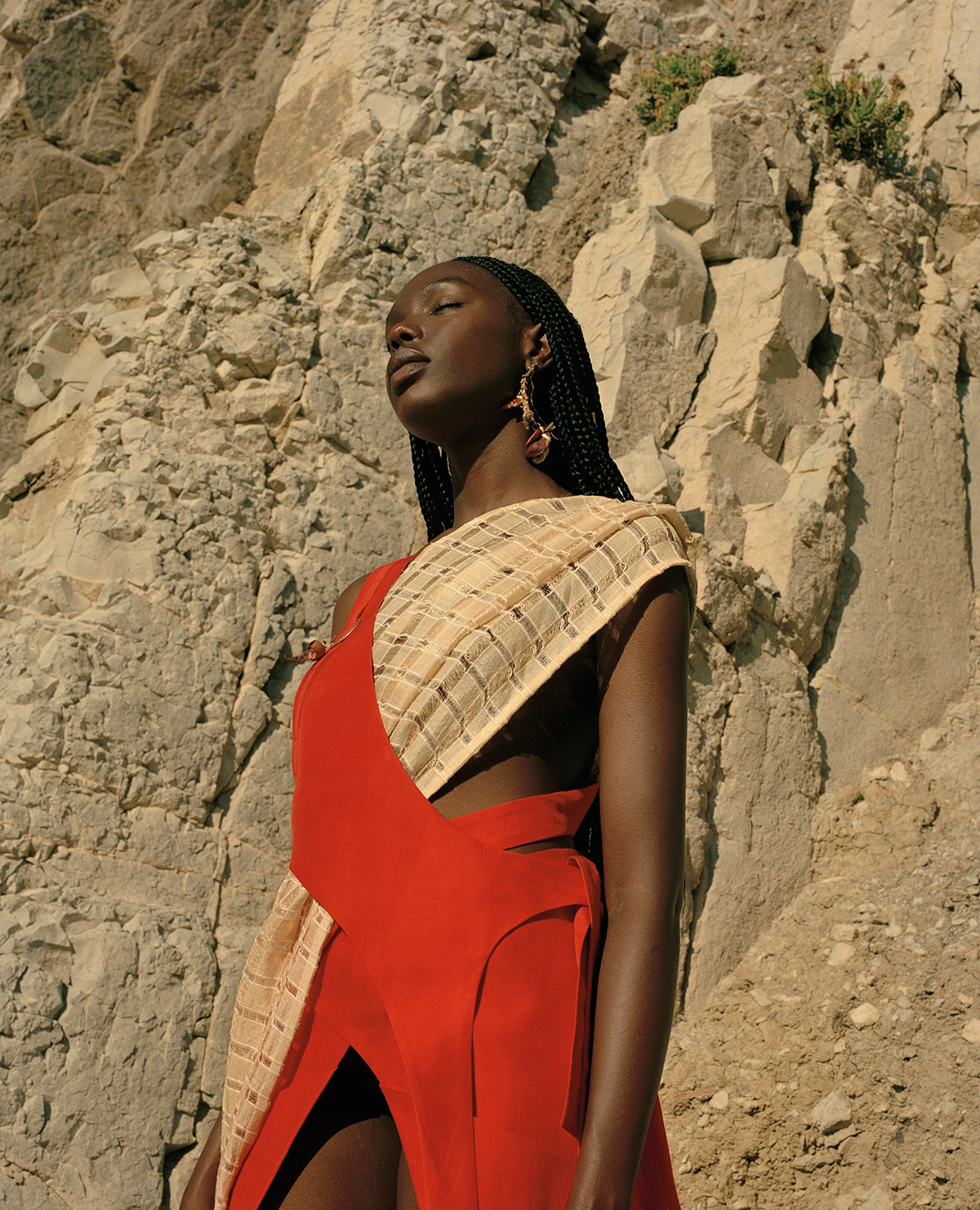
Sometimes a name tells a story. In the case of fashion designer Azura Lovisa Wännman, the name is only the beginning of a strong multicultural identity crafted by her mixed heritage and upbringing. Her fashion label is the extension of her personal fascination with storytelling and the exploration of hybridity while making use of her transcultural references to create a post-modern mythology of clothing.
Previous to launching her eponymous label, Lovisa graduated from Central Saint Martin’s with a BA in Womenswear, and earned experience at Balenciaga and Peter Pilotto. Featuring Southeast Asian aesthetic traditions merged with a Scandinavian design sensibility, her work is a harmonious universe of subtle beauty. She creates ethereal silhouettes that are sensual, elegant, and sustainable, the kind of clothes someone cherishes forever. Her pieces defy definitions and trends, are season-less, gender fluid, and designed to last as part of the wearer’s enduring personal fashion identity. LINEAL caught up with the talented Azura Lovisa to discuss sustainability, her dreams, and what is behind her idea of “clothing mythology”.
Ilia-Sybil Sdralli: How has your multicultural heritage affected your view of the world and eventually your work?
Azura Lovisa Wännman: I was raised by two very independent individuals who both left home at a young age to transplant themselves in foreign cultures via itinerant lifestyles. My Malaysian mother was a flight attendant for Saudi Airlines who was based in Jeddah, London, and later Bangkok, and my Swedish father was a DJ with residencies in Cairo, Kuwait, and Bangkok, which is where they met. Partially because of my mixed heritage, but largely because of the way they chose to live and later raise me, borders and cultural homogeneity were always something to be challenged and infiltrated. I was also raised for the majority of my life outside of both my Southeast Asian and Scandinavian cultures, growing up in Miami and later moving to London. Both those cities are multicultural, international, and home to large immigrant and diaspora communities. And even when I haven’t necessarily seen myself reflected in the people around me, I’ve been comfortable knowing that many, if not most of us feel Other in some way – and personally, it’s never felt like a negative. Instead, it feels like freedom to me. I’ve always felt at home surrounded by cultures other than my own; I am excited by the opportunities to always learn, see things through new perspectives, to witness and experience how cultures clash or converge, and how the tension and chemistry between them give rise to new things entirely.

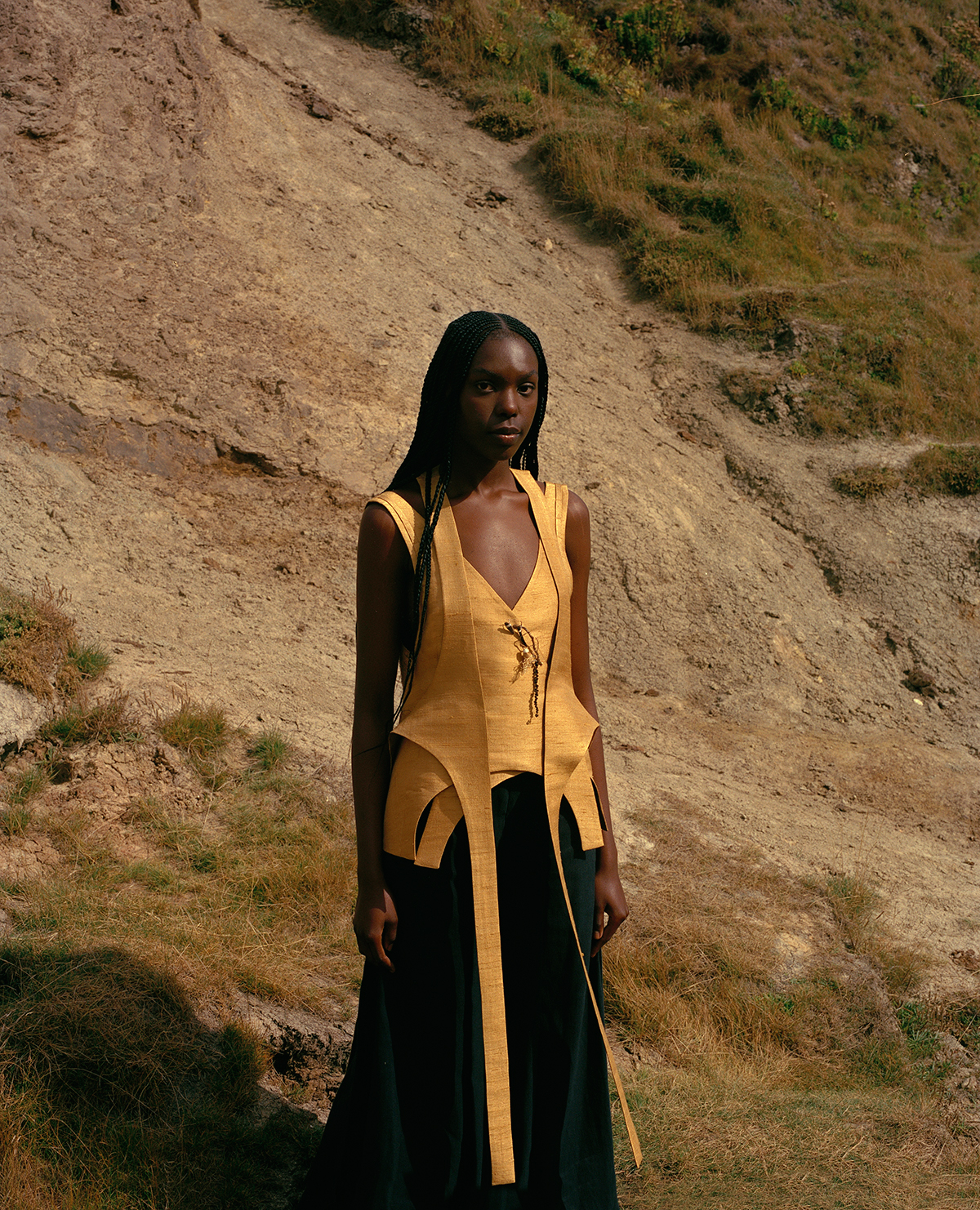
Ilia: Do you believe fashion can be a way to escape from hate speech and cultural appropriation in a post-colonial society?
Azura: I think fashion is only able to do that if we first tackle the systemic issues built into the foundations of the industry as it currently exists – meaning addressing the racist, classist, imperialist value systems that the assertions of high vs. low art, desirability vs. undesirability, and inclusivity vs. exclusivity are based on. Otherwise, all gestures are empty and performative, and this is why the cultural appropriation conversation is so cyclical and there seem to be never-ending waves of offenders who don’t learn the lessons. Fashion can only be a tool if the intention is genuine and grounded in socio-political realities and the actual work of undoing these ideologies and systems. As a cultural practice and capitalist industry, fashion is extremely powerful and has a lot of potentials to drive real change, but because it is such an enormous entity with so many layers and entanglements, progressive change only seems to happen when things reach a critical mass.
Ilia: What is clothing mythology for you? What makes clothing items unique?
Azura: “Clothing mythology” is a play on words with a double meaning – clothing, as a verb, as in to clothe mythology itself, to clothe mythical figures; and clothing mythology, as in the mythology of clothing. I think both meanings together sum up my feelings about clothes, or rather the possibility of clothes. They can have a sense of poetry about them, and real magic. They can transform us and physically, materially express what we hold within, or who we imagine ourselves to be. They can open portals to other, deeper selves, and give us the strength to embody them. They can stir feelings, and evoke memories. And, in the cloth itself, entire tales can be woven; they can show traces of the weaver’s touch and heritage and histories in the designs of its patterns. When clothing holds stories within it as well as becoming part of how we tell our own stories, that is what makes clothing special to me.
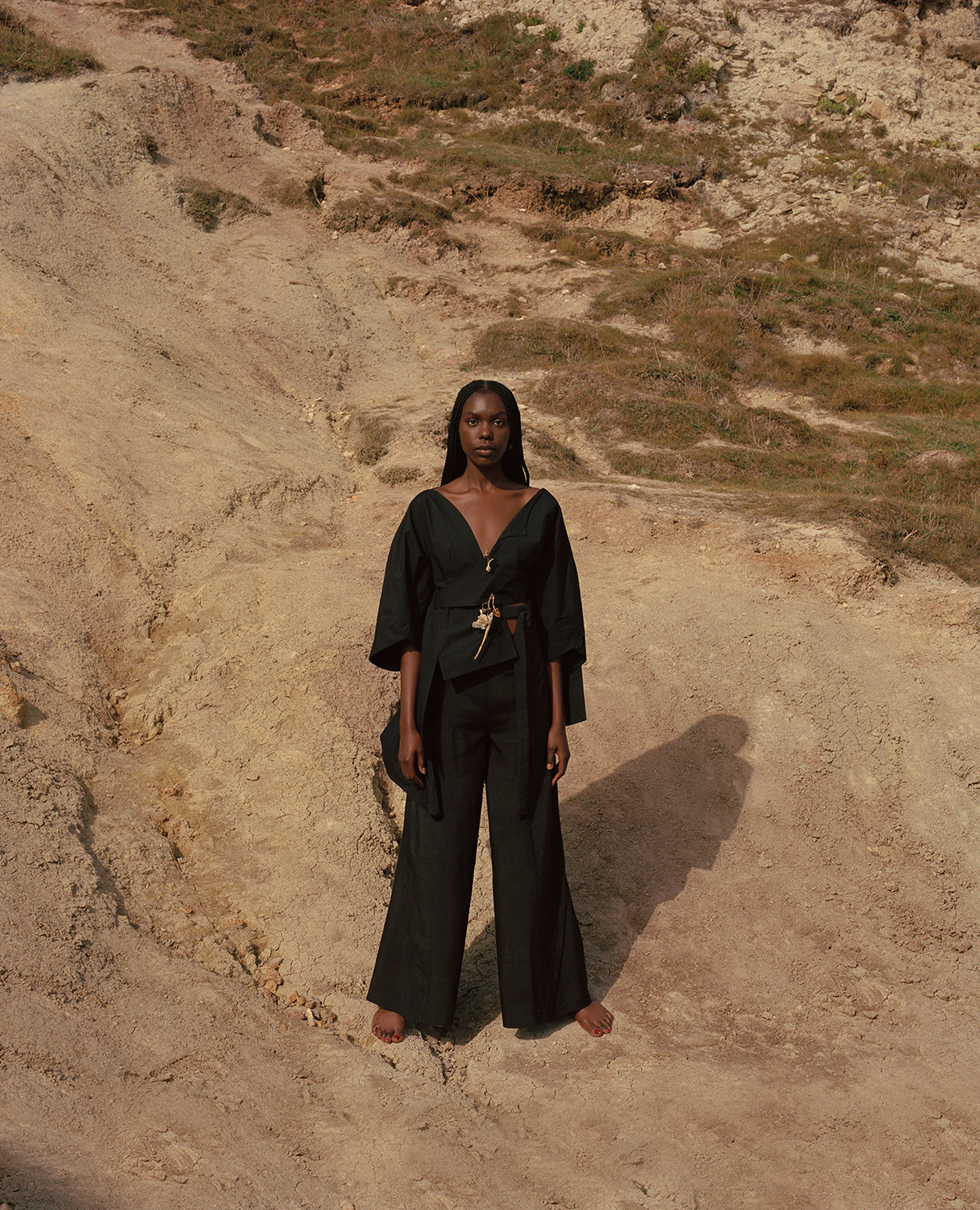
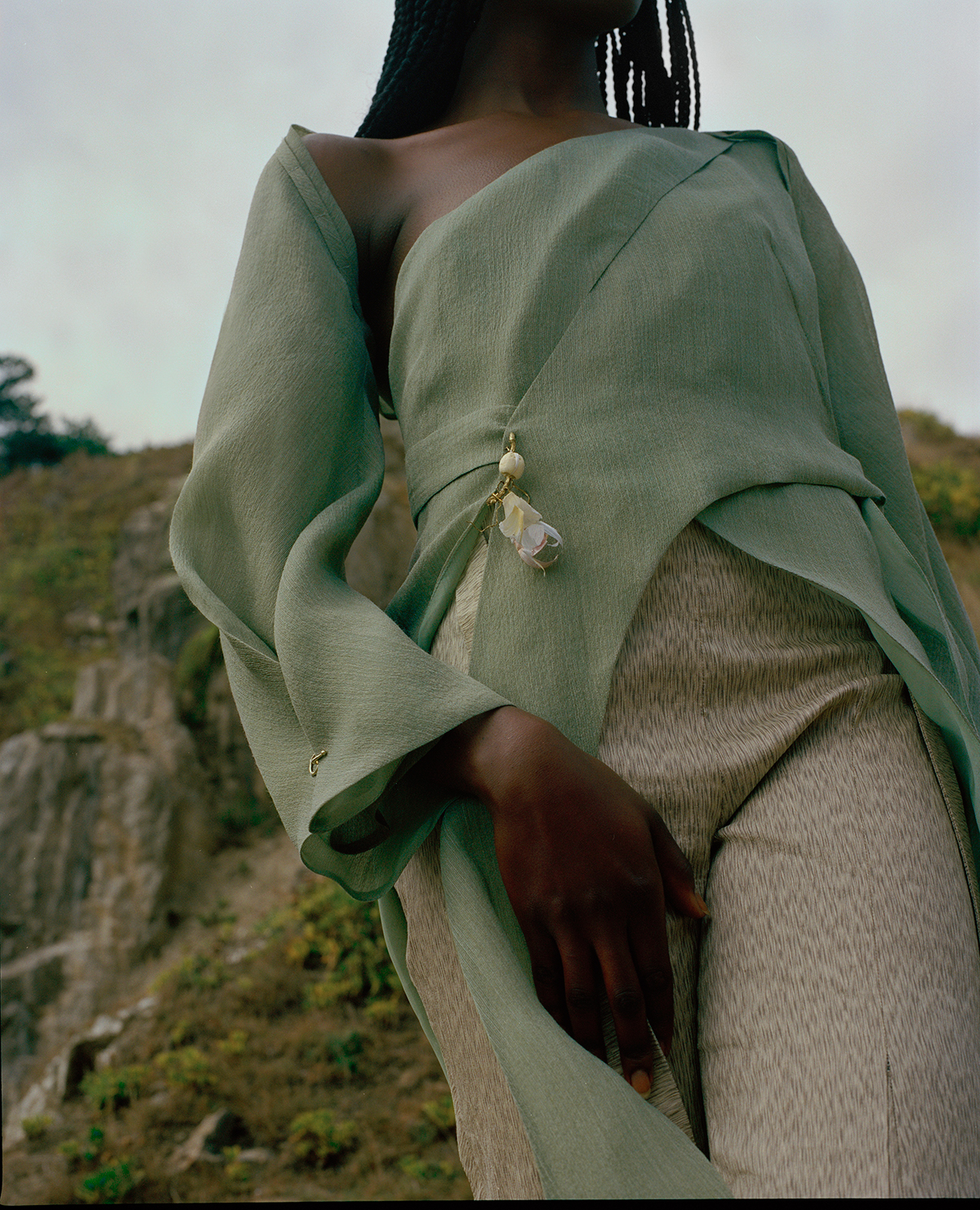
Ilia: Your work bears influences of Southeast Asian design and aesthetics. Are there any specific parts of Southeast Asian art and culture that interest you the most?
Azura: I’m endlessly fascinated by all the varieties of traditional folk dress and handwoven textiles from all across the region, of course, with all their embedded symbols and iconography – ikat, batik, and songket from Malaysia, not to mention Thai silk in mudmee and hang-kra-rok (my obsession) weaves. But beyond that, I’m very interested in where material culture overlaps with spiritual culture. Not so long ago it was understood that linking these worlds, the physical and the metaphysical, was essential to maintaining balance. I’m attracted to traditional art forms and cultural practices where this transcendental element is still felt. This comes in so many forms and they are also always evolving. Traditional forms are not static, that is quite a harmful misunderstanding, but they should be respected. My mother is of Malay and Peranakan Chinese heritage, but spent much of her life in Thailand, so the art and culture of these regions are naturally where my focus lies.
Ilia: How do you think your industry will change in a post-pandemic world?
Azura: I am hoping that the industry has learned that the pace things were operating before was unsustainable and not conducive to true artistry or to human wellbeing. I think everyone has realized that there are no real long-term benefits to operating as this insatiable machine. While I’m sure a lot of things will return to the way things were purely out of excitement and relief at the sheer possibility, I think many things have been changed forever. For example, London Fashion Week has shifted to merged women’s and men’s shows which honestly is about time when you consider issues of gender fluidity and sustainability – there simply does not need to be as many seasons as there are. Consumers are considering their purchases more carefully. In response, brands can take a breath and think about what is essential to produce and what is just noise that can be eliminated – operations are getting leaner. Also, we have migrated online, and so the digital realms are expanding immensely. I find that quite exciting, as someone who is interested in mythological worlds; the digital world and the fantasies that are possible to live out there through virtual reality are very seductive.
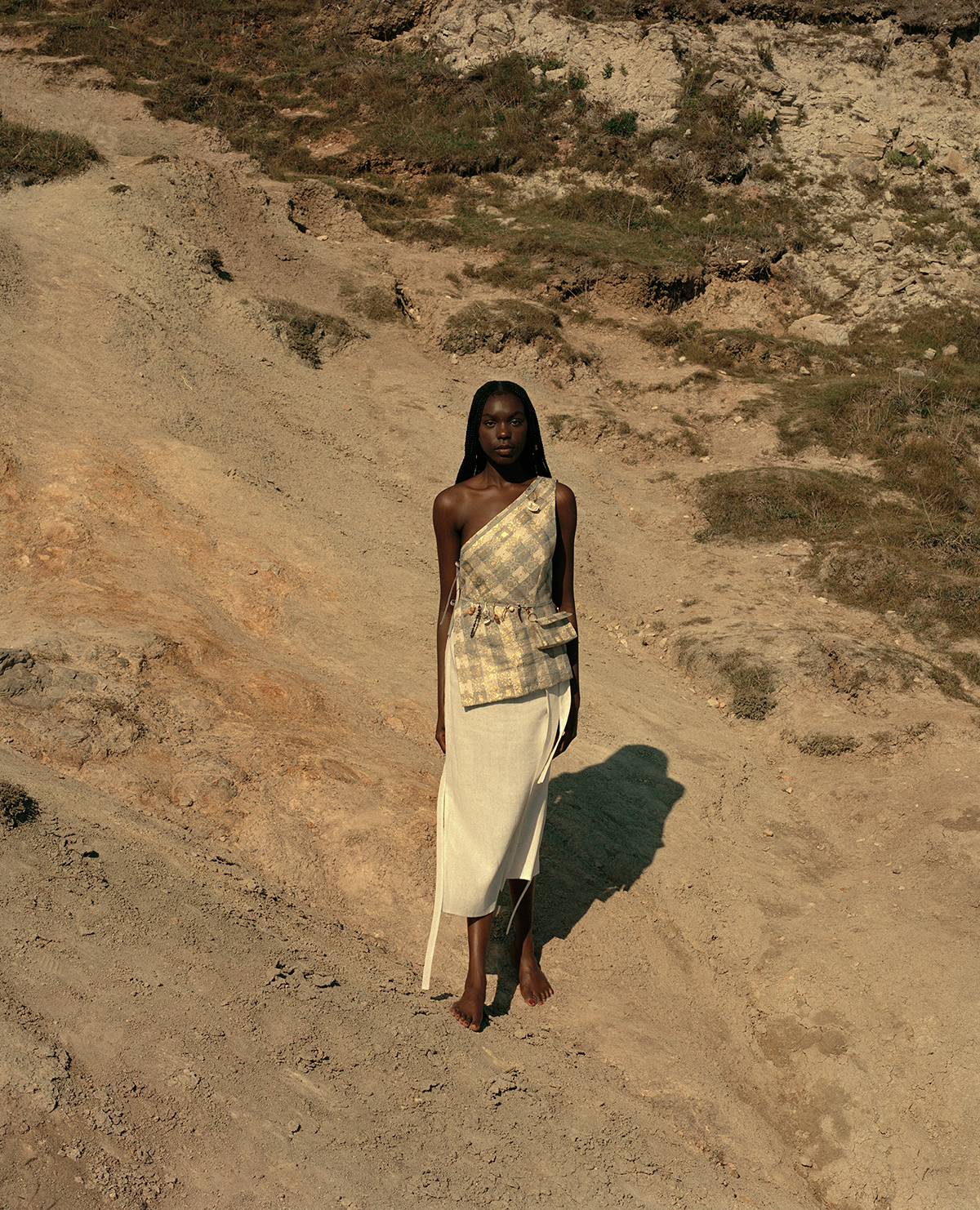
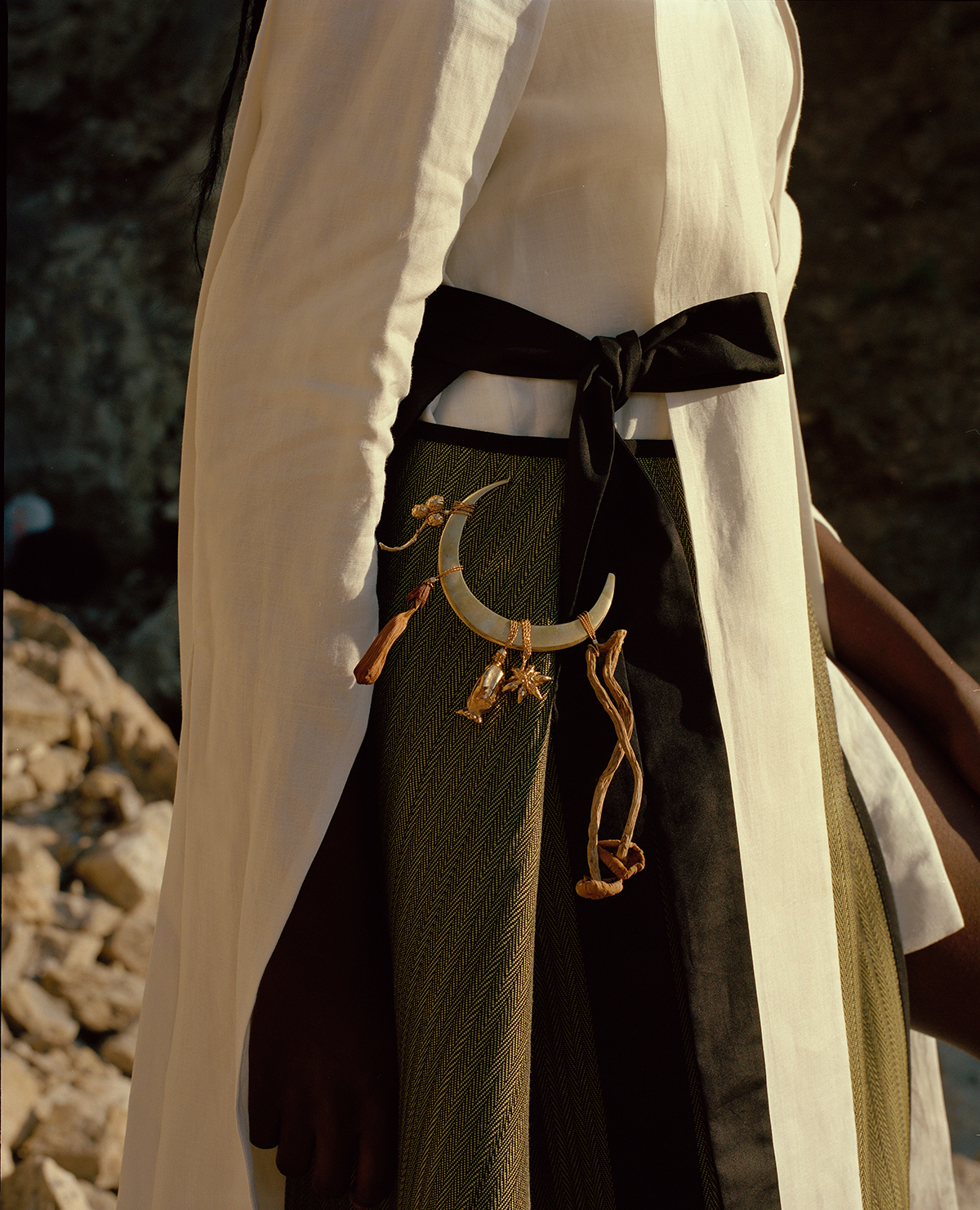
Ilia: How do you approach the idea of sustainability in your own work?
Azura: Azura Lovisa is a slow fashion label, committed to ethical practice and supporting traditional craft. Intimacy with Earth, from concept to creation, is a core value. My designs feature handwoven heritage textiles sourced from cottage industries and weaver-owned businesses, empowering rural communities in South and Southeast Asia while sustaining legacies of traditional craft. We craft small, limited runs of garments, and offer our archive pieces on a made-to-order basis, both with the intention of reducing overproduction and overconsumption. Our designs are seasonless, timeless, and of impeccable quality. All textiles are natural, organic, and sustainably produced, with a focus on fabrics handwoven on handlooms that require no electricity to create and which support craft communities. Other textiles are manufactured using methods with low environmental impact and sustainable fibres like ramie, hemp, and linen. We also occasionally produce limited editions in deadstock fabrics and heritage fabrics collected in our travels.
lIia: What can we expect from you in the future?
Azura: I aspire to grow Azura Lovisa into a leading slow fashion brand with a global presence, anchored by respect for multiculturalism, authenticity, craftsmanship, storytelling, and sustainability. We will keep collections concise and scale responsibly while strengthening relationships with craftspeople and handweaving communities in South and Southeast Asia and working with socially responsible creative initiatives that provide autonomy and support to the makers, in turn caring for their community and environment.
I also plan to extend into film, writing and publishing, art exhibitions, curation and programming, other areas of design, and social missions – all unified and guided by the brand’s ethos. I’m excited to collaborate with artists, writers, researchers, curators, and performers to expand the world of Azura Lovisa into new dimensions. In that concept, I want to build a core community around the brand, inviting the public to explore and contribute to a research database and educational platform where the brand’s inspirations and references can live on.
Jewellery by : Tanaporn Wongsa and Birgit Frietman
Share this :
Follow us :
ADVERTISEMENT
LATEST ARTICLES
Krerkburin Kernburi’s SurrealLand! Is A Series Of Extraordinary Photos Of Ordinary Days Of Our Lives
In Conversation: Lam Gia Khang Promotes Balance and Stillness Through Minimal Design
“Cham Community Project” – A Redemptive Celebration Of Muslim Community In Siem Reap
SIMILAR ARTICLES
Jonathan Liang Is Bittersweet In His Spring/Summer 2021 Collection
